Family Tree Guide to DNA Testing and Genetic Genealogy
You might already be familiar with how DNA testing can help solve crimes, confirm the paternity of children, and even determine the identity of ancient mummies.
Now DNA can also help you with your Family Tree research. It’s a simple and painless process to gather your DNA sample.
Within a few weeks, you can have results that you can compare with the ever-expanding AncestryDNA database to find potential genetic cousins.
There are three different types of DNA tests, and each are used for specific types of research. These include Y-DNA testing, mtDNA testing, and Autosomal DNA testing.
Finding Genetic Cousins
By comparing your AncestryDNA test results with others, you can determine to what extent you are related.
For example, the more closely your result set matches another’s, the narrower the range of generations between the two of you and your common ancestor.
This can help you move past difficulties and brick walls in your genealogy research.
Discover Ancient Ancestry
In addition to finding genetic cousins, your DNA test can also reveal your ancient origins. Beginning over 170,000 years ago, our ancestors migrated out of Africa and began their slow and steady spread across the continents.
Over time, as these ancestors spread throughout the world and adapted to their new surroundings and environments, their DNA diversified and they became genetically distinct from one another.
Today, these differences can be traced through DNA and provide insights on how your ancient ancestors migrated and diversified into distinct populations.
DNA testing for Ethnicity
If you are looking to discover or confirm ethnicity, a DNA test can help you with this information. Many have found information that has helped them research their Native American, African American, or Jewish genealogy.
DNA And Family Trees
All humans have 23 pairs of chromosomes, including a pair of sex chromosomes, known as “X” and “Y”.
Males have both an X- and a Y-chromosome (with the Y-chromosome inherited from the father) while females have two X-chromosomes (one X-chromosome inherited from each parent.)
Genetic Genealogy is interested in heritage markers or the area of the chromosome which reveals family relatedness.
Father to Son
Because the Y-chromosome is passed essentially unchanged from father-to-son, it provides genetic genealogists with a powerful tool for tracing a paternal lineage.
Specific portions of the Y-chromosome are analyzed and compared against other participants’ Y results to determine the relatedness between the two participants.
Mother To Child
Since both parents contribute X-chromosomes to their daughters, a different source of DNA must be used to trace the maternal line.
Mitochondrial DNA (mtDNA) is inherited by both male and female children exclusively from their mothers and provides insight into one’s maternal lineage. (Learn more about mitochondrial DNA.)
What AncestryDNA Testing Cannot Do
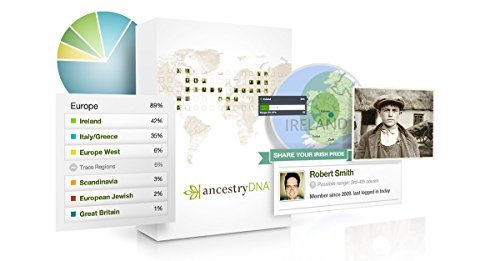
The type of testing performed by AncestryDNA is limited to areas of DNA that have the greatest application to genealogy which reveal insight into family relatedness. The portion of DNA tested is within the non-coding regions and do not provide distinguishing information about an individual such as hair color.
While DNA testing in general has a promising future as a tool for predicting one’s chances for developing disease such as diabetes, Alzheimer’s, and cancer; AncestryDNA does not perform medical diagnostic testing on any of its DNA samples.
A common application of DNA testing is in determining the paternity of a child for custody or inheritance. Results of a AncestryDNA test can definitively disprove a genetic relation.
A large number of mismatches between two test results reflects that the two participants are not directly related. A 100% match, on the other hand, cannot be used as legal proof of paternity, but can serve as a strong indication.
Privacy
AncestryDNA protects your privacy by allowing you to make your DNA results anonymous. Doing so hides your Ancestry.com username, but allows your DNA results to still be matched with others in the AncestryDNA database.
So even if you have chosen to keep your username hidden, you can still discover genetic cousins and, if the match is close enough, contact them safely and anonymously.
Your privacy is also protected by using Ancestry.com‘s Connection Service to contact other DNA participants. The Connection Service allows you to send an e-mail to a potential genetic relative without revealing your own e-mail address.
Instead, the message is sent through Ancestry.com and the system transfers the message to your e-mail address without revealing your actual address.
Replies can also be made through the Connection Service until you feel you wish to make direct e-mail contact with the other party.
What DNA Can and Can’t Tell You
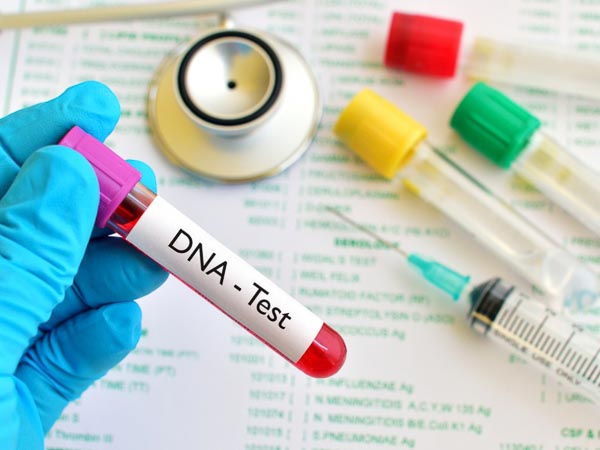
DNA testing is an exciting and relatively new facet of genealogical research.
It is primarily used for comparing specific information about your heredity to DNA records of others to find out if you share lineage, belong to a certain ethnic group, or have origins in a certain country or region.
However, before paying for a DNA test, it is important to understand what kind of information you can and cannot find in the results.
What DNA Test Can’t Tell You…
First, you should understand that having a genetic genealogy test done will not reveal any personal medical information. It will neither violate your privacy of health records or serve as a substitute for a medical exam or advanced medical testing.
Information such as genetic diseases or disorders cannot be discovered through genealogical DNA testing. Genetic genealogy also cannot tell you the exact relationship that you have with a distant relative. For example, a DNA test cannot tell you that a specific person is your great-grandfather.
What a DNA Test Can Tell You…
While a DNA test cannot confirm that someone is your great-grandfather, it can confirm that he is not. It can also tell you how closely you are related by examining the amount of shared DNA and comparing it to what is expected for close relatives.
So a DNA test can give you the probability of certain family relationships and the degree of those relationships.
DNA testing can help people who have the same last name determine if they share a common ancestor. This can be done with a specific person whom you know or by taking part in a larger surname study.
DNA testing can help you discover what percentage of your ancestry comes from certain population groups and regions, as well as the migration patterns of ancestors. Finally, a DNA test can help an adoptee find a starting point for researching their biological heredity.
Providing Context For Genealogical DNA Test
On it’s own, a DNA test is not very useful. The results must be compared with something that adds meaning. It must be combined with other research and/or compared with other records of family members or existing genetic genealogy databases.
The popularity of genetic genealogy has resulted in several large genetic databases that genealogy companies use for research. You might be given a connection to someone whom you share a common ancestor with through this research.
This can be helpful to both of you, as you can exchange documents and family tree information to help each other with research.
When combined with traditional genealogical research, DNA Genealogy testing can be a powerful tool. It can help you break through mysteries, uncertainties, and “walls” that are getting in the way of your research. It can also help you find new leads and insights.
Order your AncestryDNA® test today to get started!
yDNA Family Tree Testing
When you are conducting genealogical research through DNA, there are different kinds of tests that are used for different purposes.
Before buying a genealogy test, you should understand what kind of test(s) you are getting, what information will be researched, and what answers it can give you.
One of the available methods is the Y-DNA test.
Y-DNA Test are Helpful If
You are male – The Y chromosome is passed from father to son throughout generations, so this type of test can only be given to a male.
However, if you are female and you want this information, you can ask a close male relative to take this test for the family line.
You are researching a paternal line or surname – If you are trying to find people with your surname who share your family line, a Y-DNA test is your best source.
Because yDNA is passed through the family in the same way that surnames are usually passed (from father to son), this test is usually well-correlated with the paternal family line.
You have information to compare the results to – A yDNA test by itself is not going to tell you much. However, if you have DNA information to compare it to, then some questions can be answered.
For example, you can confirm or rule out relation to another person who shares your last name if they have also taken a yDNA test.
If you are part of a larger surname project, yDNA from all participants will be compared to find those with common ancestors.
What About Mutations
While yDNA is most often passed from father to son throughout a long line of generations, there have been times when small changes called mutations have occurred in the genetic code.
As this happens, a new “branch” is formed in the family line, and this mutation is passed to all who descend after the mutation.
These branches are called “haplogroups.” Because of the vast amount of genetic information that exists, scientists have identified specific haplogroups, along with information about migration patterns associated with each group.
Your yDNA test might be able to identify your haplogroup, giving you information about your more ancient family line.
If you researching your paternal line, you can find new insights by ordering a yDNA test today and get Free Shipping on AncestryDNA® with code: FREESHIPDNA
mtDNA Family Tree Testing
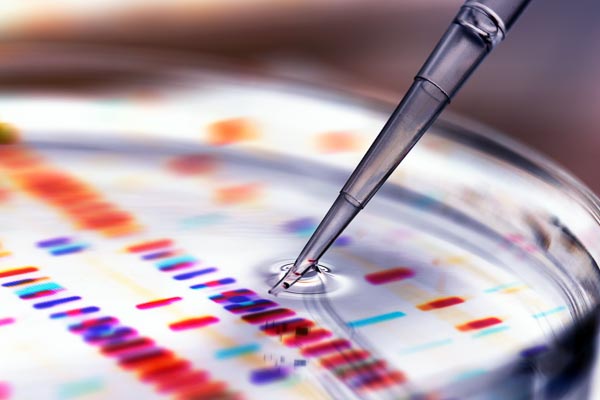
The mtDNA test is done by testing your mitochondrial DNA, which is passed from a mother to all of her children. Unlike the yDNA test, both males and females can have this test done, as both sexes inherit this type of DNA from their mother.
Although this means that the test is helpful to more people, it is also more difficult to follow through a long line of generations.
This is because the maternal parent usually is given a new married name with each generation.
Advantages and Disadvantages of Researching Your Maternal Line
Unlike your paternal line, the mother’s surname most often changes with each generation. This can make traditional genealogy research difficult.
When you hit roadblocks and uncertainties, an mtDNA test can help you answer questions and solve problems.
However, this also works in reverse.
All DNA testing is useful only when you have data to compare it to. Therefore, the amount of additional information you have available can have a great impact when interpreting your results.
mtDNA is certainly a helpful piece of research in your overall process.
Matchew and Mutations
Mutations, or new family “branches” that are formed with changes in DNA, happen more slowly in mtDNA than in the paternal line. This means that you could receive a high number of matches when you order an mtDNA test.
Your goal is to use this information to find the common ancestor. While this can be challenging, the slow mutation also means that mtDNA can help you identify from which ancient people groups your ancestors originate.
These groups, called haplogroups, can show you interesting information about your area of family origin and migration patterns
If you researching your maternal line, you can discover valuable information by ordering a mtDNA test today.
Autosomal Genealogy Testing
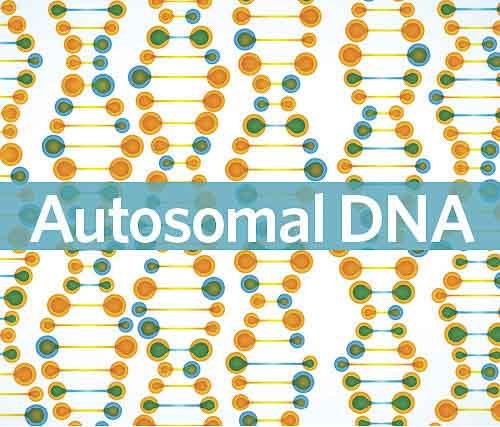
DNA testing is a great way to enhance your genealogy research. It can give you new leads, help you solve problems or answer questions, and confirm your current findings from previous genealogy work.
There are different kinds of DNA tests that are used for different kinds of research. Before you get started, you should understand what kind of test you are receiving and how it can help you.
One of the available tests is the Autosomal DNA test, or atDNA.
THE Autosomal DNA Test is Broader Than other Test
Unlike the Y-DNA test, this test can be taken by males and females. While other DNA tests concentrate specifically on either the paternal or maternal line, the Autosomal test can help you find relatives along any segment of your family tree.
It examines common heredity on a much wider scale by examining the 22 chromosomes in your DNA that do not determine sex.
This means that you can find cousins out to the third level, and at times even fourth or fifth cousins (although accuracy decreases at these levels). This information can help you connect with other relatives who might hold the key to solving mysteries in your completed research.
Autosomal DNA Testing is Useful for Recent Generations Only
Your atDNA is received from both parents, about 50% from each. This means that your grandparents each contribute about 25% of your atDNA, and the mix is diluted with each prior generation.
Autosomal DNA is only useful to about the fifth or sixth generation. You can increase the reach and effectiveness of this test by having the members of the oldest living generation of your family tested as well.
Autosomal DNA is Best When Paired with Thorough Genealogy Research
This test is designed to help you advance your current work on your family tree by casting a wide but shallow net to find undiscovered relatives.
It will not provide a deep look into your more ancient ancestry. However, the broad nature of this test also means that you will probably find more living relatives who may add valuable information to your work. When this is your the atDNA test is the perfect choice.
If you are looking for new leads, confirmations, and solutions to questions in your family research, you can open new doors by ordering an atDNA test today.
Adoption And DNA Testing

Most people find the idea of genealogy and DNA testing to be an interesting topic for consideration. However, the significance of genetic DNA testing is much greater for those who are adopted.
Adoptees are likely to know little to nothing about their biological roots, and DNA testing can help them find a starting point for research.
Your first thought about DNA testing for adoption research is probably about locating birth parents. This is certainly of high interest to many who discover that they are adopted.
However, this is only one of many reasons an adoptee might be interested in DNA testing.
Exploring the Past: Learning about Origins
Some DNA tests can provide a deep look into origins. This can be geographic, finding regions where original ancestors have lived and migrated.
It can also be ethnic; an adopted person may simply want to know what broader races and people groups he or she belongs to.
For those who have origins in mind, the yDNA and mtDNA tests are most useful. The yDNA test (paternal line) is for males only, while the mtDNA test (maternal line) is available to both males and females.
Besides researching members of the paternal or maternal bloodline, these tests can reach far back to ancestral roots, revealing ethnicity, ancient people groups, and geographic areas of origin.
The yDNA test can also identify possible surnames of the paternal line.
Exploring the Present: Finding Living Relatives
There are many reasons an adoptee may be interested in finding present-day relatives. Some are looking for connections to help find biological parents or siblings.
Others simply want to establish relationships with blood relatives. In some cases, adoptees may be wanting to find relatives who can provide family medical history to help with important health decisions.
For those who are looking for present living relatives, the autosomal DNA test, or atDNA test, is the best choice.
The atDNA test is only effective for five or six generations back; however, it explores a much wider base of genetic information to find distant cousins, aunts, uncles, and other relatives.
Some have found siblings and parents directly through atDNA, but this is rare. It is much more common to find other relatives who can provide a starting point for research and/or develop into a source of lifelong relationships.
If you are looking to answer questions about your adoption and origins, you can get started by ordering a DNA test today.
African American Ancestry DNA Testing
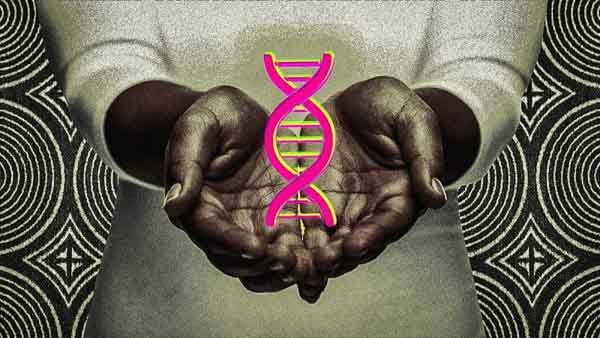
The family stories that are discovered through genealogy research are often treasured pieces of information. Most people love to know where they come from and who has contributed to their own story. It is interesting to have a connection with a home land across the ocean and its culture.
For African-Americans, uncovering such stories and connections is difficult. Because of the slave trade in our country’s early history, traditional genealogy research for an African American often leads to dead ends and brick walls.
However, DNA testing has opened up a new opportunity for African Americans to learn about their deeper ancestry.
What DNA Testing Can Reveal About African American Ancestry
Over the last decade, large DNA databases have been collected from various parts of West Africa.
A DNA test can reveal if your family originates from the areas covered by modern-day Nigeria, Benin, Togo, Ghana, or Sierra Leone.
It is also possible to find ancestry in Senegal, the Gambia, the Congo River basin, or Angola.
While it might not be able to give you a specific sub-group or tribe, DNA testing can help you locate a broader “home land” that can tell you more about your family background.
Other Ancestry Found in African American DNA Testing
DNA has shown us that we share more ancestry than we hold differently. According to USA Today, approximately 30% of African Americans descend from a European paternal line.
Many have also found Native American ancestry in their mix of relatives. A DNA test can lead to previously unknown places of origin outside of Africa.
What Kind of DNA Test Do You Need?
Because African American ancestry can lead to maternal and paternal lines in vastly different areas of the world, it is recommended that you don’t just test one side.
Autosomal DNA – You can test both lines, or you can research broadly with an Autosomal DNA test. The Autosomal DNA test is a broad DNA test that researches a wide range of relatives, including cousins.
This test can also help you find living relatives who you might want to connect with.
Y-DNA – Y-DNA testing is for males only, and it tests the paternal line of ancestry. Females can have a close male relative tested to research paternal descent.
mtDNA – The mtDNA test researches the maternal line, passed from mothers to all of their children, and carried on through daughters.w
Get started with your African American DNA test today.
Jewish Genealogy Through DNA
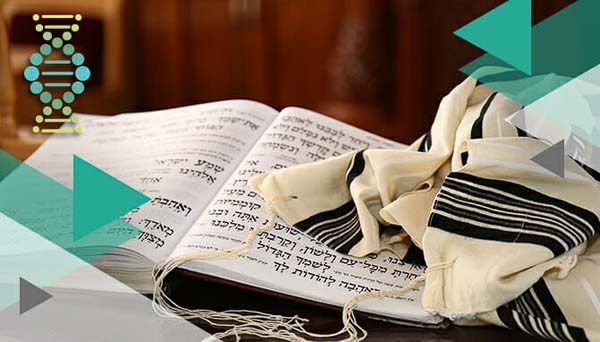
Jewish genealogy can be a complicated history to trace. Because Judaism is primarily a religion, it cannot be pinpointed by a specific genetic mutation.
However, you can still find out the likelihood of Jewish ancestry through a DNA test.
While DNA cannot absolutely confirm Jewish ancestry, it can tell whether you are a match with ancestors who have claimed Jewish origin. You can find the likelihood of Jewish descent by examining the number of matches with this origin.
Corroboration from other traditional genealogy research can help you confirm these results.
Special Challenges in JEWISH DNA Testing
One of the challenges of Jewish genealogy is that surnames often changed over time. As a population that endured much hardship and discrimination, families often changed surnames once they immigrated to blend into the culture.
There is also a lack of genealogical records in Jewish ancestry, making the task of research and corroboration more difficult.
Types of JEWISH Ancestry
Current DNA databases can show matches for Ashkenazim, Sephardim, and Levites.
The Levite group can also be further broken down to find matches in the Cohanim line, a priestly line originating from Moses’ brother Aaron.
What Kind of DNA Test Do You Need?
The test you need depends on the type of information you are looking for.
Autosomal DNA – You can test both lines, or you can research broadly with an Autosomal DNA test. The Autosomal DNA test is a broad DNA test that researches a wide range of relatives, including cousins. This test can also help you find living relatives who you might want to connect with.
Y-DNA – Y-DNA testing is for males only, and it tests the paternal line of ancestry. Females can have a close male relative tested to research paternal descent.
mtDNA – The mtDNA test researches the maternal line, passed from mothers to all of their children, and carried on through daughters.
Get started with your African American DNA test today.
Native American Genealogy Through DNA

Do you have reason to believe there is Native American blood in your ancestry?
Are you trying to confirm Native American roots that you have uncovered in your traditional genealogy research?
Many people are researching their Native American genealogy through DNA testing.
What Can DNA Reveal about Native American Ancestry
A DNA test can help you with your genealogy research into a possible Native American bloodline.
However, it is important to understand the limits of DNA testing in this area. While it can confirm that an ancestor was a Native from before European settlement, it is rare to find confirmation specific enough to place your heritage in a certain tribe.
It is possible; but it is more likely to get broader information.
Reasons to Test DNA for Native American Ancestry
The best reason to do a DNA test for Native American Ancestry to aid your traditional genealogy research and to learn more about your family and background.
While some hope to find grants or other federal benefits that they qualify for, the availability of such funds is well below what most people assume or estimate. The requirements to join a federally recognized tribe are usually high, and the likelihood that a DNA test can confirm a specific sub-group are low.
However, the information that can be confirmed or uncovered about your family’s story can be a great reason to research your Native American descent.
What Kind of DNA Test Do You Need?
Autosomal DNA – You can test both lines, or you can research broadly with an Autosomal DNA test. TIf you suspect Native American descent, but do not have a specific relative pinpointed, the Autosomal DNA test is your best choice. This will look broad into your family to find if you have a Native American relative somewhere in your family’s general past.
Y-DNA – If there is a male ancestor that you believe was Native American, you can have a current male family member in his direct paternal line tested with a Y-DNA test. This could confirm that he was not a Native American, could show that he is “highly likely” to be Native American, or in some cases, confirm ancestry as part of a specific sub-group.
mtDNA – Use a mtDNA test if it is a female ancestor that you believe was Native American, you will need to test a current relative in her direct maternal line. This would be a child, child or her daughter, child of her daughter’s daughter, etc. This type of test can only point to general Native American ancestry; it cannot confirm that she was part of a specific sub-group.
Get started with your African American DNA test today.

